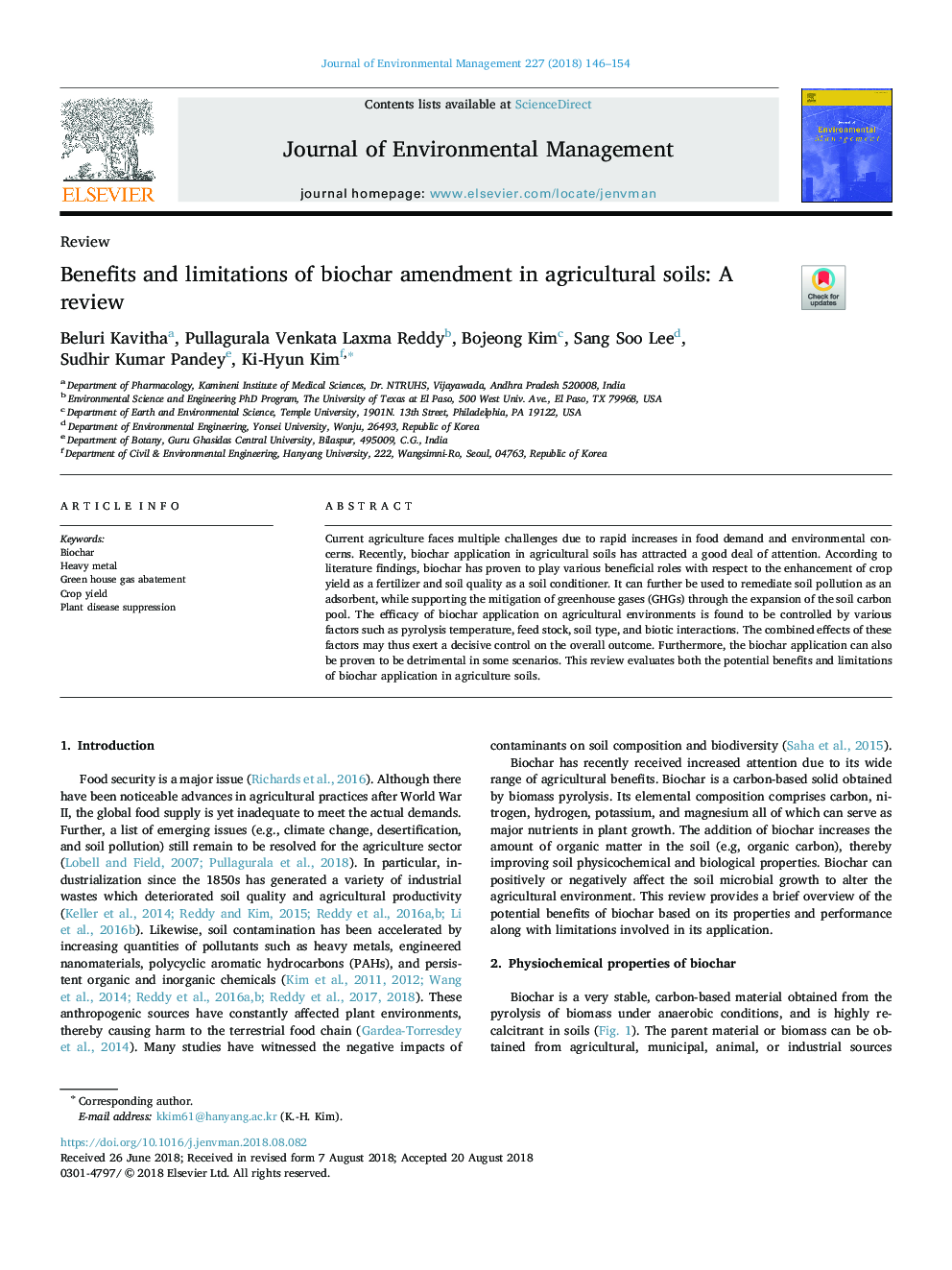| Article ID | Journal | Published Year | Pages | File Type |
|---|---|---|---|---|
| 8954722 | Journal of Environmental Management | 2018 | 9 Pages |
Abstract
Current agriculture faces multiple challenges due to rapid increases in food demand and environmental concerns. Recently, biochar application in agricultural soils has attracted a good deal of attention. According to literature findings, biochar has proven to play various beneficial roles with respect to the enhancement of crop yield as a fertilizer and soil quality as a soil conditioner. It can further be used to remediate soil pollution as an adsorbent, while supporting the mitigation of greenhouse gases (GHGs) through the expansion of the soil carbon pool. The efficacy of biochar application on agricultural environments is found to be controlled by various factors such as pyrolysis temperature, feed stock, soil type, and biotic interactions. The combined effects of these factors may thus exert a decisive control on the overall outcome. Furthermore, the biochar application can also be proven to be detrimental in some scenarios. This review evaluates both the potential benefits and limitations of biochar application in agriculture soils.
Keywords
Related Topics
Physical Sciences and Engineering
Energy
Renewable Energy, Sustainability and the Environment
Authors
Beluri Kavitha, Pullagurala Venkata Laxma Reddy, Bojeong Kim, Sang Soo Lee, Sudhir Kumar Pandey, Ki-Hyun Kim,
